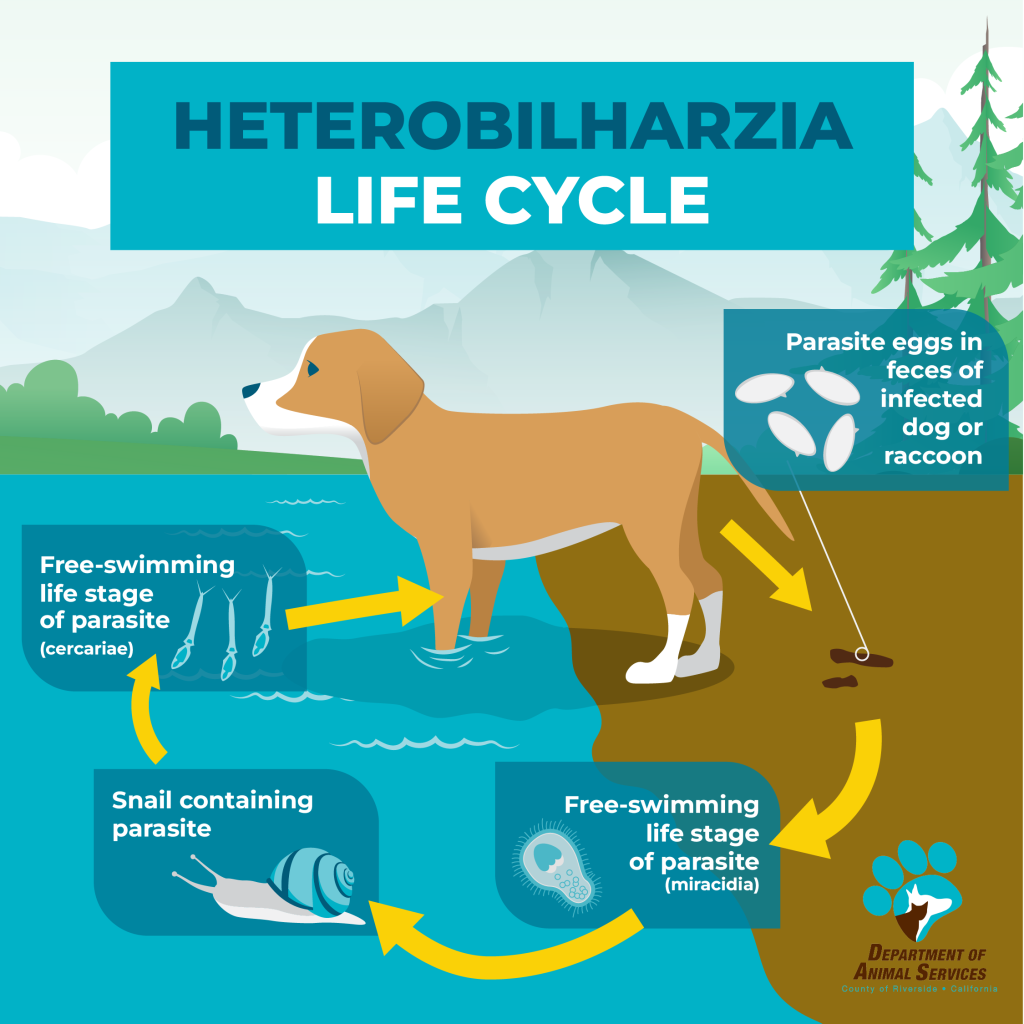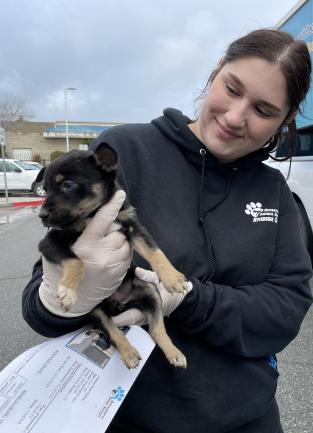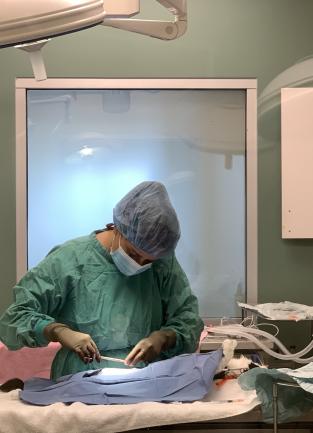Dogs Across Three Counties Impacted by Freshwater Parasite
Tue, 18/04/2023 - 05:00
Image

April 18, 2023
CONTACT:
Kerri Mabee
Public Information Officer
Phone: 951.507.3794 / 951.565.7934
Email: [email protected]
CONTACT:
Kerri Mabee
Public Information Officer
Phone: 951.507.3794 / 951.565.7934
Email: [email protected]
Dogs across three counties impacted by parasite found in freshwater source
Local veterinarians recently reported nine cases of schistosomiasis in dogs – seven in Orange County and two in Riverside County, with two additional cases diagnosed in Los Angeles County in 2018.
Canine schistosomiasis, which can sicken and in extreme cases be fatal to dogs, is caused by a freshwater parasite called Heterobilharzia americana which is primarily found in the American South and in the Gulf Coast states. The parasite is not currently known to exist in Southern California.
“Infected dogs may not show signs of illness early in the course of the disease, yet this is when treatment tends to be most successful,” said Sara Strongin, chief veterinarian at Riverside County Department of Animal Services.
“Although humans may develop a self-limiting rash after contact with contaminated water sources, it is important to recognize that the disease is not transmitted directly to humans or between dogs. So, there is no need for grave concern, particularly if your family and pets do not swim or play in freshwater sources.”
According to Strongin, it is believed that the dogs possibly contracted the parasite while swimming in the Colorado River where their families were camping along the California/Arizona border.
To date, a total of 11 cases have been confirmed between Oct. 2018 and Jan. 2023 in Southern California. One of the dogs did not survive, while the remaining dogs recovered after treatment.
Symptoms include diarrhea, weight loss and lethargy. Some infected dogs may experience fever. Since the disease tends to have a slow, gradual onset, dogs may remain asymptomatic until later in the course of the disease.
Strongin said that the best measure of prevention is for dogs to avoid direct contact with natural bodies of freshwater to include lakes, rivers and streams that increase the likelihood of infection. At this time, it is not known definitively if the parasite is present in Southern California.
For more information about schistosomiasis, visit: https://rcdas.org/veterinarians. Send questions to [email protected].
Riverside County Department of Animal Services
6851 Van Buren Blvd, Jurupa Valley, CA 92509 Phone (951) 358-7387 FAX (951) 358-7300 TDD (951) 358-5124
6851 Van Buren Blvd, Jurupa Valley, CA 92509 Phone (951) 358-7387 FAX (951) 358-7300 TDD (951) 358-5124






